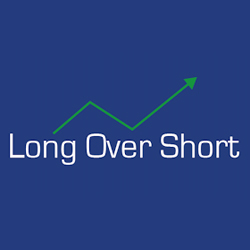In more ways than some would probably like to admit, gambling and trading are enticing activities for similar, albeit superficial, reasons. For both, there’s a kind of chase thrill seekers can relate to. Whether you’re playing a slot game or diversifying a portfolio, there’s an element of risk and the potential for a swift profit at play.

Shared risks: Why regulations and restrictions are valuable
The activities of trading and gambling cannot be separated by the ever-present possibilities of losses as well as wins. This is why restrictions have been placed as they have. Governments have some idea of what is likely to happen if financial markets are unregulated. To avoid excessive behavior, maintain a decent level of transparency and keep financial markets from swinging about wildly, regulations and restrictions are non-negotiable. The same logic applies, in essence, to gambling.
Restrictions are present in both trading and online gambling. The major aims and intentions behind these restrictions relate to making sure everyone involved can enjoy some amount of protection. Beyond this, the similarities abruptly end. The restrictions themselves are governed by different authorities for the most part, and look very different when placed side by side.
Gambling restrictions
In order for gambling operators to actually encourage you to create an account to access their digital doors, they have to first be able to promise that they won’t attempt to swindle you. This is the real strength of gambling regulations, at least for players. With the right license, it’s possible for you to know with a single glance that you’re about to enter a space that your government has looked at with a fine-tooth comb. If the operator in question has the right license, it’s been decided that the site’s operator conducts business fairly. No license means the site hasn’t been forced to make sure their odds are fair and their payout structures aren’t necessarily balanced in the operator’s favor.
In some cases, gambling restrictions might have less to do with regulations and more to do with individual player preferences. Players can set their own restrictions using tools like GamStop, which is a freely-available service in the United Kingdom, for example. This service isn’t designed to completely stop a player, but has managed to help many struggling with excessive gambling. It’s worth pointing out that determined players can still play casino without any restrictions at so-called non-GamStop sites, emphasizing the idea that this restriction isn’t the same as more fully-regulated gambling or trading restrictions.
Restrictions on gambling vary a surprising amount from country to country. Many countries might have a monopoly on lotteries but loose rules around offshore betting sites. Some might have tighter controls based on enduring cultural beliefs or moral codes. Nordic countries rely heavily on licenses. In North America, sports betting regulations aren’t as strict as online casino player restrictions. In places like Australia, concerns over crypto have caused recent reforms and a ban disallowing players from making deposits using crypto e-wallets or credit cards.
Trading restrictions
Trading restrictions are more complicated, while still directly focusing on upholding an environment that’s fair. Insider trading has the potential to cause serious, irreparable damage to a country’s economy if left unchecked. Trading rules and limitations have been drawn up and refined over the years to make sure the playing field for traders of all kinds is even and level.
Unlike online casino gaming and sports bets, trades that are defined by excessive risk-taking have the very real potential to destabilize. That’s one of the main reasons why bans and limits exist. Without them, the market would be entirely unable to promise fair access, provide accurate information and keep traders safe from manipulation.
Above all else, the market must be kept stable. Bubbles and crashes have played roles in some major recessions, and so requirements on margins and circuit breakers exist to stop extremes from happening. Circuit breakers specifically have an important function. They can be understood as a kind of safety net, limiting the effects of sudden sentiments and news from damaging all-important market stability.
Rules exist to protect everyone involved. Some trading platforms have rules set out by governing authorities designed to protect novice traders from making easy-to-make mistakes. Depending on the platform, these limitations might only appear on beginner accounts, or be put in place for all traders.
Responsibility is the tie that binds
Without a doubt, the overlap between trading and gambling restrictions exists in how both nudge participants towards safe, responsible actions. Responsible behavior could look like self-imposed limits through tools like GamStop, or trading-related stop-loss orders. Creating space for a trader or gambler to breathe and cool-off between sessions is another way some platforms promote level-headedness from their audiences. For casinos, this might mean that after an hour or so of uninterrupted play, you might be kicked out of the session and told to do something else for a while.
In both casino platforms and trading platforms, it’s simple to find resources and guidelines written with responsible education in mind. Risk assessments are ideal for trading environments. Specialized tools can make it clear when a potential trade might be far riskier than a person might have expected. By using a risk assessment tool, you will find yourself nudged towards the kinds of trading strategies that work best for your sensibilities.

 Hot Features
Hot Features













